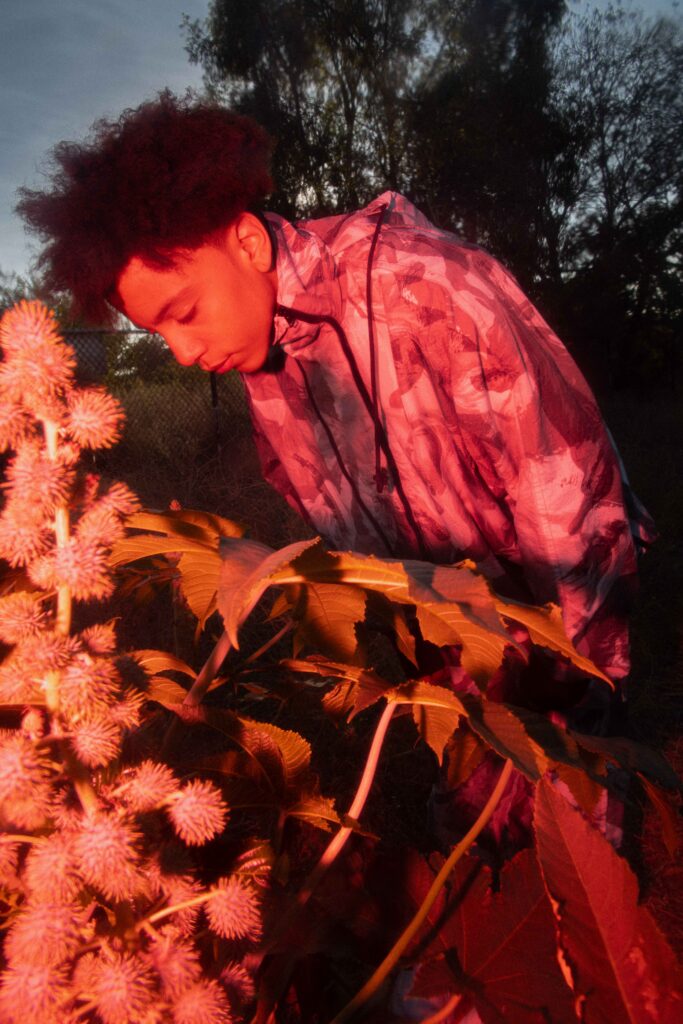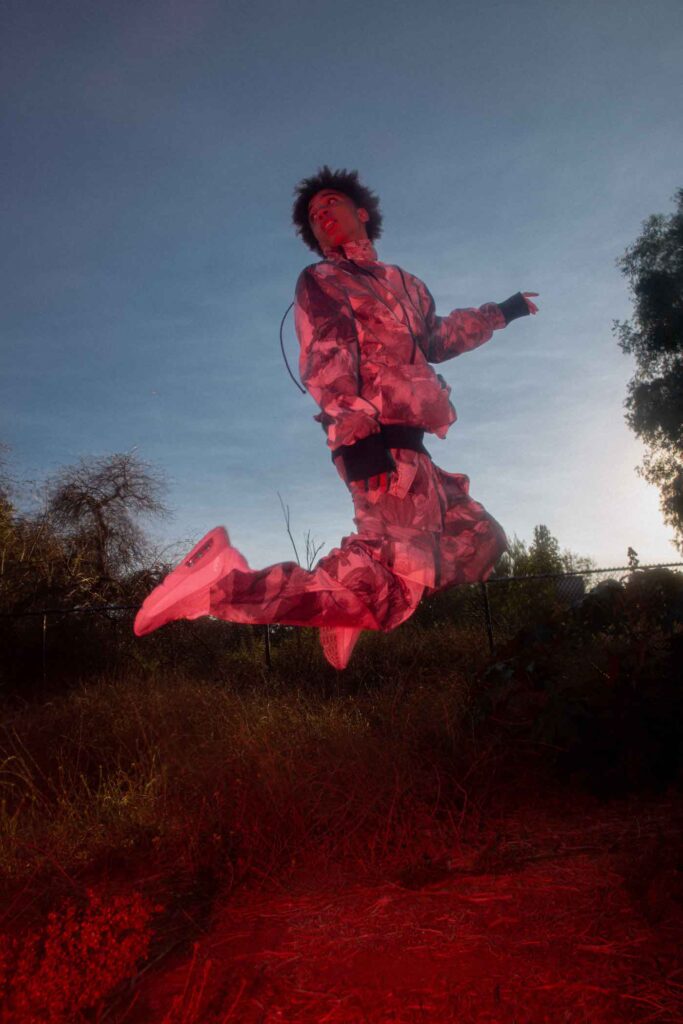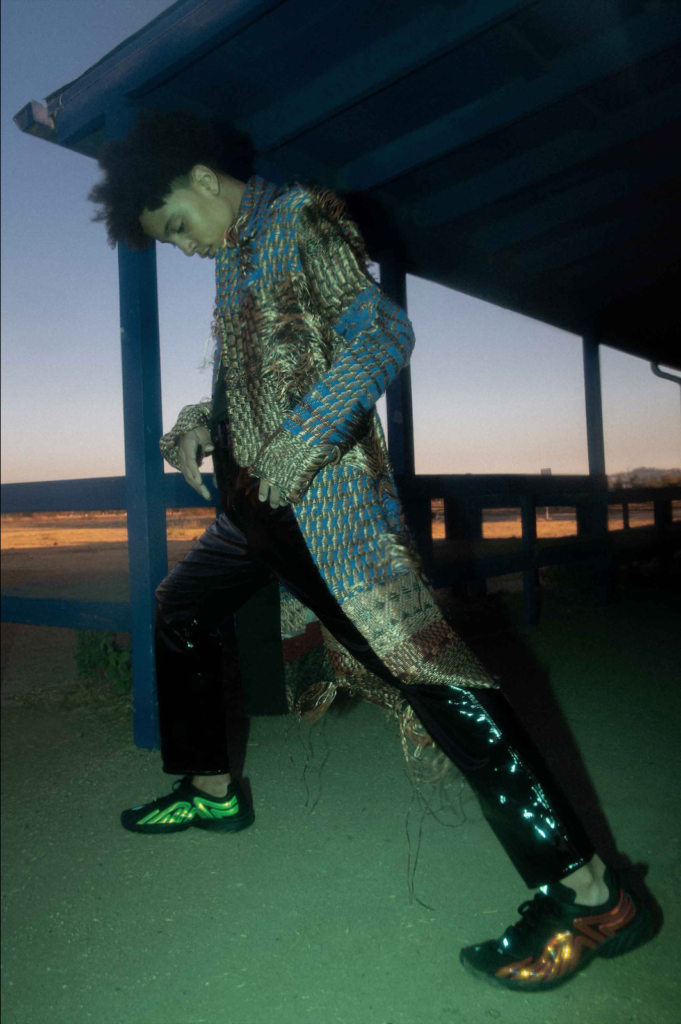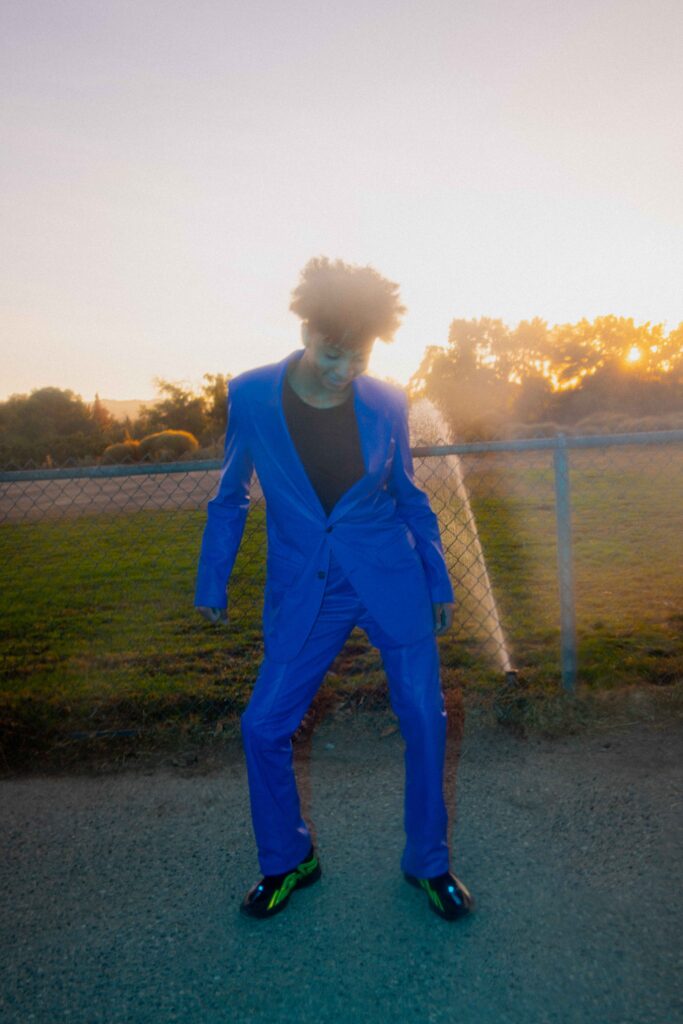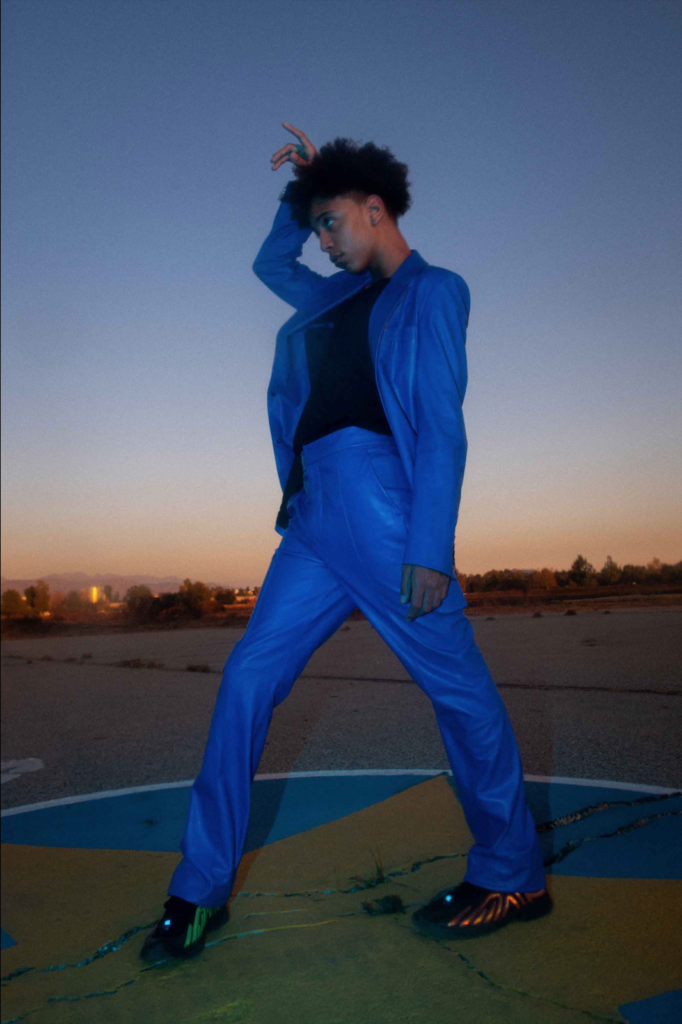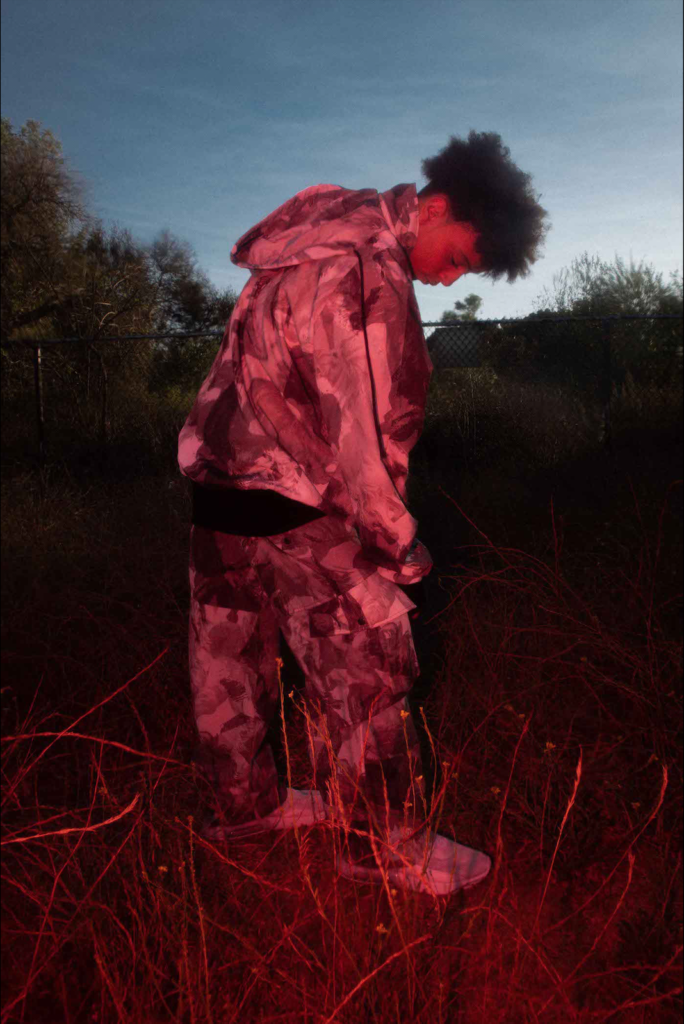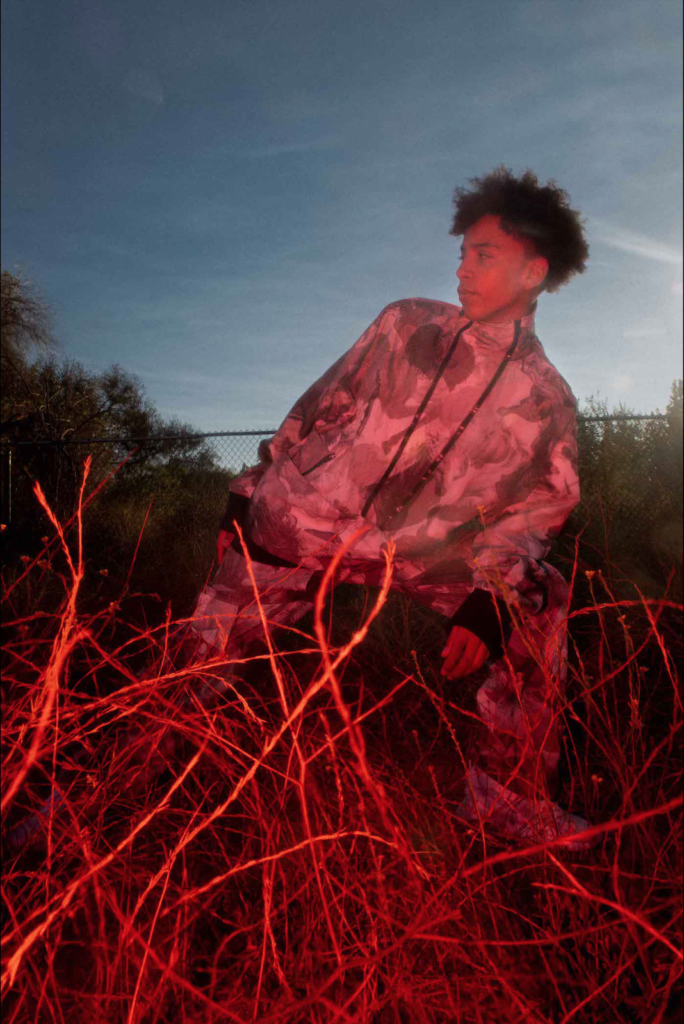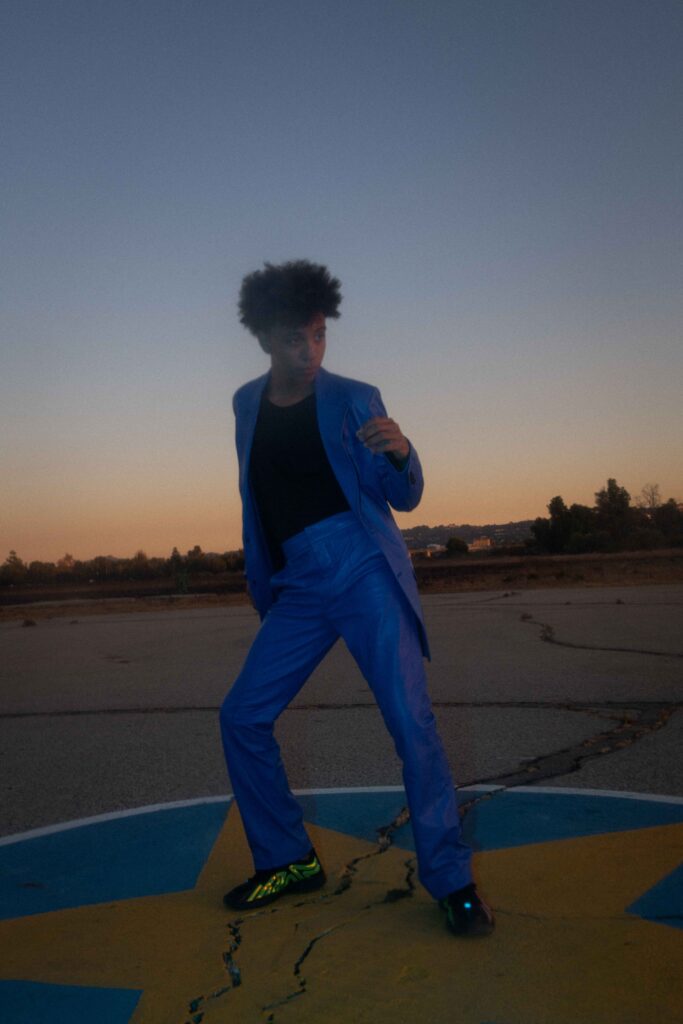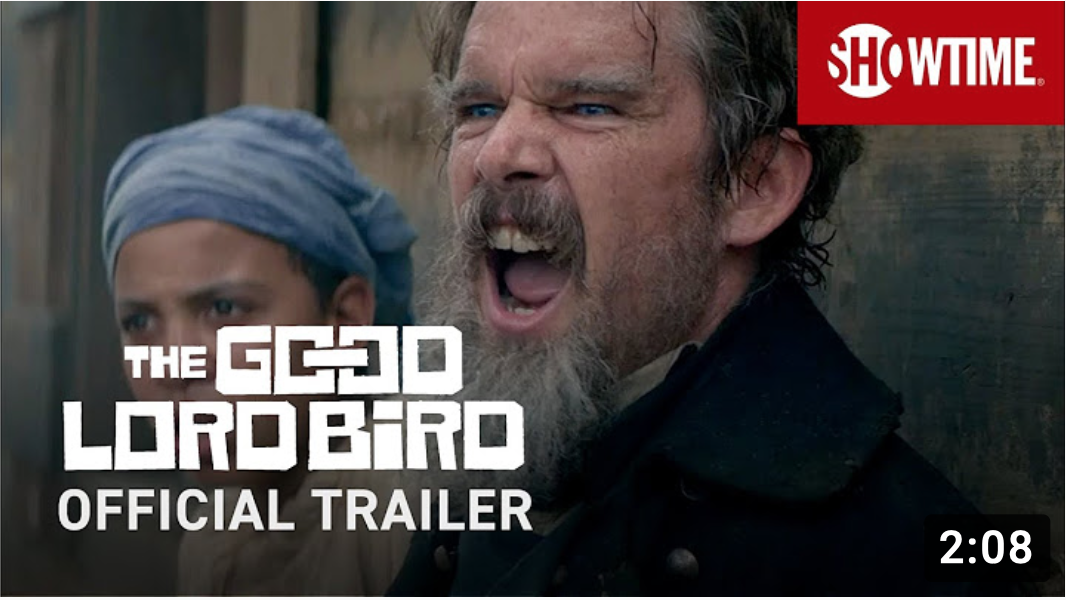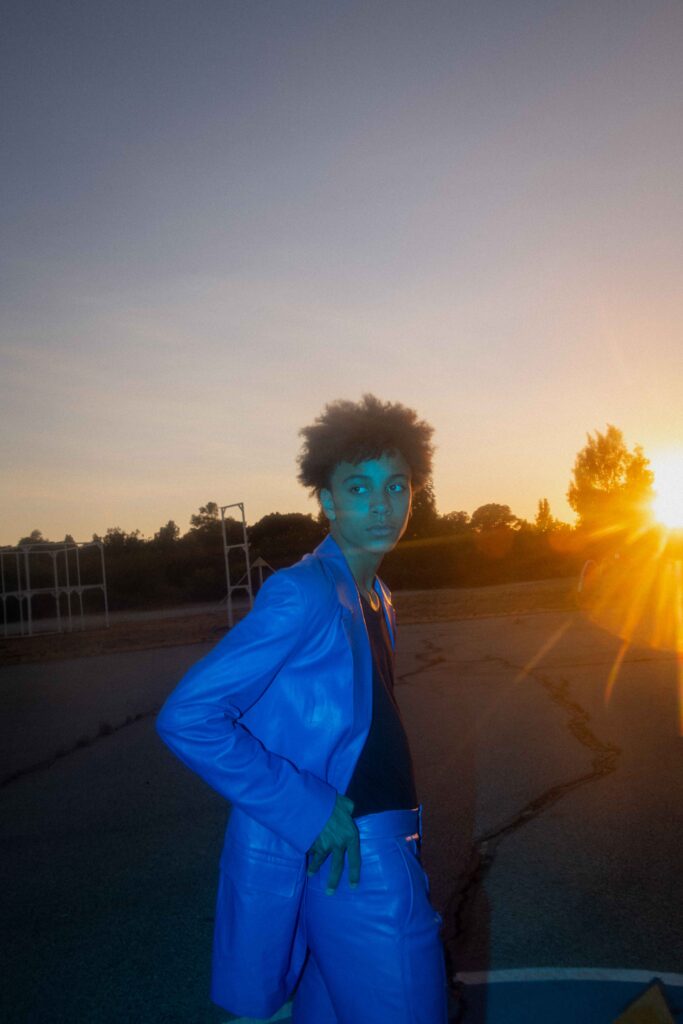
JOSHUA CALEB JOHNSON
in Showtime series
THE GOOD LORD BIRD
Interview by Laura Albert
Interview Transcribed by Fotis Tzanakin
LAURA: Darnell Martin, who directed episode three, is a good friend of mine.
JOSHUA: Oh wow!
LAURA: Darnell adores you, as you know. And she sends her love. We talked a lot about the process and what she saw going down. It’s something very special, as you know, which she brings.
JOSHUA: Yeah, exactly! I love Darnell! She is an amazing director! Actually, what I love most about her, when it comes to her directing, is how focused she is on the performance of the actor, and how she helped me develop the character of Onion tremendously.
LAURA: Yeah, she talked about how she would say like, “Let’s live in this for a moment. Let’s sit with this.”
JOSHUA: I would say that it’s almost like, kind of taking a step back and reviewing what the character’s going through, the character’s back story, what the scene’s about, and really trying to dive all the way into the character. Darnell is very much focused on the performance of an actor, and firmly believes how well an actor does is kind of the output of the story. And in episode three, doing scenes with Daveed Diggs as Frederick Douglass and Quentin Plair as Emperor, Darnell made sure we were very comfortable in our workspace and we were fully head on diving deep into the scenes.
LAURA: Episode three was pivotal for Onion. Like Darnell said, “You’re no longer being passive, nothing is passive anymore.” Especially that scene where you’re deciding not to run, to escape – that’s a visually powerful transformative moment.
JOSHUA: I think it was my first day working with Darnell, actually…
LAURA: Wow!
JOSHUA: And the crazy part, I’ve never had an experience like that. Because she was like, “Josh, before every scene you’re going to drop down and give me 30 pushups and 20 jumping jacks.” I was like…
LAURA: Wait, wait – she says that?
JOSHUA: Yeah! So before every single scene that day, I dropped down and gave her 30 pushups and 20 jumping jacks. And I think at one time she made me do 10 burpees, or something like that. Because the scene was such a high emotion scene, so much was going on in the mind of Onion, so she wanted my heartbeat to be all the way up, she wanted my heart racing, she wanted me out of breath, cause I’m struggling to make a decision, whether to run away or stay with John Brown. That was one of the first moments of Oh we’re doing this… We’re not talking about it over dinner or over the phone anymore. We’re actually doing this. It’s time to get down to business!
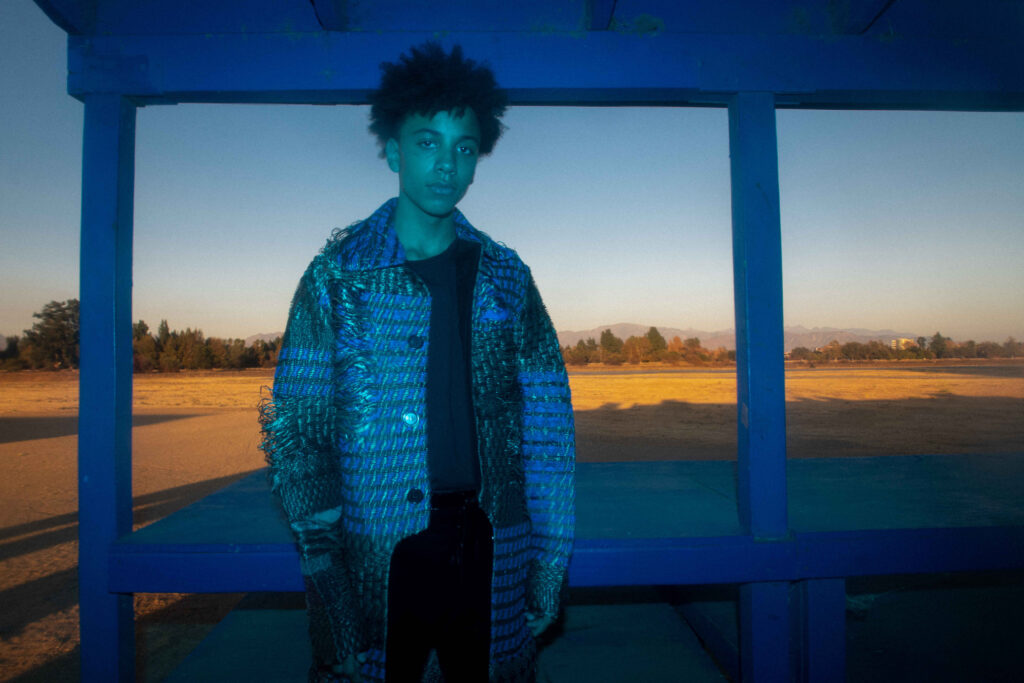
LAURA: This is what Darnell said: Josh did such a great job because he was really listening, and we played a lot with breathing. Okay so you’re going to be scared, do you know how scared feels like? Breathe, breathe. Okay, now breathe faster. Breathe faster. You can put yourself into a state of actual anxiety and fear just from breathing in a certain way. That sound familiar?
JOSHUA: Yeah that sounds just like Darnell, I think she said actually breath is a very big thing when it comes to showing emotion – especially when being frustrated, fearful or not really knowing what to do. And that’s one of the biggest gifts I took away from that episode, really understanding how to prepare myself for a scene and how to prepare myself for what a character actually is going through. And I think Darnell really allowed me to tap into my inner emotions when it came to that role.
LAURA: She said that her job ultimately is to create a safe place where people can tell the truth. And that you were able to find what the truth is. So, you have a lot of very intense, intricate moments, but that scene, when you are precariously carrying a tray of lemonade to John Brown and Frederick Douglass, that’s hilarious.
JOSHUA: That was a kind of – it wasn’t intense for me, it was kind of like I don’t want to drop the lemonade and shatter glass and spill on someone’s costume! That’s what I was really thinking about all the time. Onion would be thinking the same thing, I’m not trying to spill, I don’t want to spill any lemonade on Frederick Douglass’s clothes or the Captain’s clothes or his maps. It was just this thought in my head, I don’t want to mess up. I think that drove the scene, and also the fact is I had one shoe on and one shoe off because Darnell wanted me to be unbalanced. So it made it even harder for me to balance the tray, making it look like I was actually struggling very hard to hold the tray up.
LAURA: Wow! So she used a lot of her director skills to put you physically in that state. And it’s very funny because you have two very trained actors, with their theater chops about physicality, and you’re in there and you’re holding your own with them, whizzing around.
JOSHUA: Thank you.
LAURA: I know you guys didn’t have a lot of time, but you did a lot to find out who the characters were – and she was really proud of how you went with it! And let’s talk about when Onion is deciding to stay with John Brown and not escape. That scene is very powerful, it’s clear you’re fully there, you’re available.
JOSHUA: Exactly.
LAURA: What was it for you to convey that decision-making? Because like Darnell said, you’re no longer being passive, nothing is passive anymore. You’re the one who’s doing the deciding.
JOSHUA: Yeah, I think that was one of the maturing points in the story. There are a few maturing points in the story for Onion, but that’s one of the bigger ones, where Onion really grows up and he sees his freedom. Onion doesn’t want to be confined anymore to just what John Brown thinks or what John Brown needs. And I think Onion is trying to grow up and be his own person in the world without someone always telling him what to do. I mean he escaped slavery in other ways to be a slave again to John Brown, and do everything that John Brown told him to do. And so, I think that’s what was going through my mind as I was doing that scene and choosing whether I want to run away or choosing whether I want to stay with John Brown.
LAURA: When you’re looking down that hidden tunnel which is the underground railroad, inside Frederick Douglas’ home… So before that scene you did jumping jacks or pushups?
JOSHUA: I did burpees before that scene, I almost ripped my costume! I remember my wardrobe person said to Darnell, “Yeah Darnell look, I know Josh has to do a whole process before he does a scene, and I fully understand and it’s fine with me, but Josh ripped his dress, and I don’t want to have to keep sewing it every five minutes before a scene.” ‘Cause she had to saw it three times in a row – we kept tearing it at the exact same place over and over again.
LAURA: That is really funny! How did you negotiate that?
JOSHUA: Dropped it down to five burpees instead of ten. And then she said to replace the five burpees, and I just started high-knees, and then I would do like hyperventilating before the scene to really, really get my heart beat up and my breath up.
LAURA: And what did you notice that changed within you?
JOSHUA: I felt like me struggling to breathe was kind of representing physically Onion’s internal choice of freedom or staying with John Brown. Because all his life, Onion has been a slave, with Dutch Henry for 11 or 12 years and then just when Onion thinks he’s going to be freed by John Brown, he gets kidnapped in Onion’s words and really becomes the slave again, to John Brown. And whatever John Brown asks him to do he’s done it out of fear of his life and out of fear of what’s going to happen if he doesn’t obey. And I think the breaths really allowed me as Joshua playing Onion to experience the heartache and the very tense kind of like tug of war between what Onion really wants to do.
LAURA: Did you use the breath exercises throughout filming?
JOSHUA: Oh yeah, for the whole entire show. I learned various tricks on how to get your breath up and how to just feel and look more intense on camera. One of the things I learned from Ethan was this thing called the “yes / no” game. One person starts off saying Yes very quietly and then the trick is the next person has to be louder every single time. So, I say yes, and then say Ethan says No, he says it louder than I say yes, and I have to say yes louder than he says no. And we keep going back and forth until we start screaming at each other and that gets your heart rate up, breath up, and it allows you to be intense. And I used that for the scene where I would have to be either really angry or I have to cry, because I can translate my anger into tears.
LAURA: Yeah, you can see that really shining through. Let’s go back a bit. Tell me how you got involved in The Good Lord Bird. Because you had some roles in indie films and TV.
JOSHUA: For me it was about the end of February 2019 I believe, when I first got my audition for The Good Lord Bird. It was the first one, actually – I went in for the first one. I did a monologue from The Adventures of Huckleberry Finn. I think I had maybe six or seven auditions, including call-backs. It was a very long process. I think it took almost three months for them to cast me. I got cast two days before my birthday, it was a really cool early birthday present.
LAURA: When is your birthday?
JOSHUA: May 28.
LAURA: When you were auditioning, did you always use Huckleberry Finn or did you ever work from the James McBride book, The Good Lord Bird?
JOSHUA: I think we got one pair of sides, but it was mostly the Huckleberry Finn monologue. That’s what Ethan told me, the monologue was the biggest thing, because it brought a lot of story. Huckleberry Finn’s language is very similar to Onion’s dialect back in those days, and also The Good Lord Bird in a lot of ways is retelling Huckleberry Finn – only through a slave’s point of view. And you know I think that’s a monologue I’d still use to today, if I ever have to use one for anything. I’d use that because it was an amazing monologue.
LAURA: What is the monologue?
JOSHUA: It’s from Huckleberry Finn. There’s really no title for it, it wasn’t meant to be a monologue. They just took a long piece of dialogue that Huck Finn had and printed it out to recite. It’s an amazing monologue. Even if I hadn’t ended up getting it, I still learned a lot just from doing the cold reads with Ethan, and talking with Ethan, and him giving me directions and us playing around with the sides.
LAURA: At what point did you meet Ethan?
JOSHUA: I met him after my first audition. My first call back, I met him.
LAURA: Wow! Do you know how many people you were up against, that they were considering?
JOSHUA: Ethan said thousands of kids.
LAURA: What’s mind blowing to me was all the conditions you guys were filming in, Ethan said it was harsh. There were bad mosquitos and it was cold…
JOSHUA: It was everything. I mean it was very hot weather too, 120 degrees, and there was snow… We were in Virginia, we filmed around the general area of Richmond and different places like Petersburg. Virginia was so kind to allow us to film on their state farm, which is a huge piece of land, like thousands of acres of just land where we can build our sets, have our trailers, our base and just film and have a great time. So, it was a pretty cool experience, but the weather was something fierce. I’ve never experienced weather like that in my life. It was 120 degrees, it was snowing, super windy, leaves everywhere, and there were snakes everywhere, bugs, spiders you name it. It was everything in God’s known name in Virginia.
LAURA: I think people have the idea that, when you’re working on a Hollywood set, you are somehow excluded from discomfort. I’ve had a movie made of one of my books and we froze on the set in Tennessee. On the set of the HBO show Deadwood too, which also takes place in the 1870s, my son was on the show, wearing boiled-wool clothes? But it was like a 100-and-something degrees and there was no air-conditioning…
JOSHUA: Exactly! That’s what it really was. I’m glad we shot in Virginia though, it brought out a different type of feeling – that’s what those people felt like back in those days. John Brown wore full wool suits, and you know his sons wore all that clothing, and in 100 degree weather. So, I feel like just being in that environment in Virginia where Harpers Ferry actually happened, that helped a lot of the character background – for myself at least.
LAURA: Did you go to any of the actual locations?
JOSHUA: I didn’t go to Harpers Ferry or anything like that, but I did a lot of research when I came to Virginia. I went to a house of the president of the confederacy, Jefferson Davis. I went on a slave trail, I went to the civil rights museum and then I went to a slave boarding cell where they kept slaves and got them ready to be auctioned off. On top of watching various movies and reading books.
LAURA: When did you guys end filming?
JOSHUA: We started filming in July, I believe middle of July and we ended middle of November 2019.
LAURA: Goes by fast, right?
JOSHUA: Very fast. I remember that last day filming, I was like, I just got here. It felt like a few weeks ago. It kind of flew by.
LAURA: And then to go into COVID and not have the kind of the traditional release with a cast reunion is sad. And it seems like there’s been a slow build on The Good Lord Bird. I just sent Darnell last night the incredible review from The New Yorker by Doreen St. Félix. Did you see that?
JOSHUA: Yes I did.
LAURA: It made her day, she was really happy. Finally people are getting the humor in that episode.
JOSHUA: I think that was the biggest thing really… especially for that episode, but I think surrounding the whole show, we want people to understand the humor – and that we’re not making fun of slavery, but in order to talk about slavery you have to add some type of humorous element because it’s a very hard subject for a lot of people to talk about. I’m not saying the entire show is based on humor, but I feel for people to understand and to kind of forgive themselves or for our country to heal at least, I feel that humor is needed. And you know, I’m super happy I was able to be on a project like this, that could really start conversations and do something for America, not just entertainment-wise.
LAURA: Exactly. I just think that Doreen St. Félix’s review captured what the series achieves, and you need a writer in her position to give people permission to be available to what’s there. When I tweeted about the interview with Darnell, Daveed Diggs tweeted back “Darnell is a genius and everyone should be proud of being a part of brilliant, wonderful work.” And I wanted to ask, your character serves as a narrator for the audience, we see everything through your eyes. That’s not the same thing as simply playing a character in a film. Did being the narrator change your approach to playing Onion on camera, or was that narrating voice another take on your character?
JOSHUA: Yeah, it was another take. I mean because the narration part of the story is the older Onion reflecting on the times he had with John Brown. And so I’m super glad I was able to play Onion first, before I did the voiceover, because I could actually remember how it was, filming with Ethan.
LAURA: What was it like having five different directors to work with?
JOSHUA: it was a real cool experience, because I got to see various styles and approaches that directors take. I got to learn a lot, like I noticed how some directors are more kind of technical in how they approach the show, and then other directors, like Darnell, are very emotional and all about what the actor wants and needs to perform at the best of his ability.
LAURA: Right. And also Darnell’s friendship with Ethan, being able to know that, okay we can maybe play around with what needs to happen here.
JOSHUA: Exactly! Episode three was a very fun time on set, everyone was super happy. We’re always able to joke, but when it came down to handling the business of acting and all the serious things, we were able to be there mentally. And what I live for as an actor is to be able to have such a great time on set and make new family, make new friends, but also when it comes to the business of doing the scenes and being in the role as Onion, as I was in the Good Lord Bird, it’s there. And Darnell Martin is one of my favorite directors I’ve ever worked with. She’s a joy to have on set and a joy to talk to and a joy to work with. I wouldn’t change having her as one of my directors for anything.
LAURA: Well she said the exact same thing about you, and just how available you are. So what is it like now, doing all the press? It’s a very different way of being out there. How are you and your family managing it?
JOSHUA: It’s amazing. You know obviously I would love to talk in person with you and everyone who has interviewed me. But that time will come, I’m pretty sure of it. Still, it’s been an amazing experience, being able to talk to all these different people around the country and around the world, who are so interested in the hard work and the blood and sweat and tears that was put into this project. It’s very humbling. And if I could do it again, I would. It’s an amazing project and this whole interviewing and press process has been an amazing experience as well. I love it. There’s not much more I could say when it comes to that.
LAURA: I have another question about making the film. By presenting himself as female for most of the film, Onion is able to observe a lot and learn a lot, especially about race in the States. Does your character also learn about gender by having been Henrietta? Also, what would you say you learned by playing the role?
JOSHUA: Well, I think Onion did learn a few things pretending to be a woman. For myself, my mom always says now that I’ve experienced what it’s like to wear heels and be in a dress, I’m going to be at least 100 times better as a husband when I’m older, because I know what my wife is going through. I just kind of gained a different level of respect, especially when it comes to discrimination and the oppression a lot of women have to go through. I know this is the 1860s, but it had its form of cat-calling I should say, because as Henrietta – you can see in episode two – a lot of those men kept trying to holler at Onion the entire time, and you know I understand what my sister, my mom, and a lot of my female friends go through when it comes to that. So I have a newfound respect for what a lot of women go through, that I didn’t actually know about.
LAURA: Sometimes in that role it looked like they had coated you with dirt.
JOSHUA: In the first two episodes, I might say I was covered in dirt all the time you know, whether I was in a potato sack or one of the dresses. But when I went to Frederick Douglass’s, I had to be all cleaned up coming to the profound house of “the King of the Negroes,” as Brown says. I had to look all nice and not dirty. I think for the rest of the show I’m dirty most of the time, because it is back in the 1850s, and riding with John Brown is not an easy job. You’re out in the woods, camping… There are a lot of spray bottles they use to put pretend sweat on you, and they blotted dirt all over my face, put dirt under my nails. At one point, cause I had my ear pierced since I was a kid, they had to cover my earring holes for like an episode and a half, until my character officially got his ears pierced. Once I got to Pikesville, the prostitute Pie had to girl me up, so she had to pierce my ears and put a dress on me, and she just tried to girl me up to the best of her availability. And they were like well she already has earring holes, we might as well give her earrings.
LAURA: That’s great! It’s funny, I have a prostitute named Pie in my book SARAH too! Did they shoot Pie piercing Onions’ ears?
JOSHUA: That wasn’t even in the script! That was just kind of on the spot. Ethan was like, “Well it makes sense if he gets earrings instead of covering up his ear holes.” And it’s a lot of work – I don’t even know what the substance they used was called, I believe it was silicone. But they had to like get perfect when they mix the right amount of water with the silicone so they make it hard enough to stay on my ears for a whole day. It was kind of pretty cool, on spot kind of thing.
LAURA: Must’ve been a relief. Did you have a dialogue coach?
JOSHUA: Yeah, I had an amazing dialogue coach Michael Buster. He dialogued coached the main character on Twelve Years A Slave – I don’t remember all the other projects he did. But he taught me so much when it came down to dialect and really broke it down to me so I can be consistent and not have the dialogue up sometimes and other times not so much. He was an amazing coach.
LAURA: I know some projects had to stop filming because of Covid and are now running again but under strict conditions of Covid safety protocol. You are lucky you got to have finished before Covid hit.
JOSHUA: It would have been like a completely different, because it would have took me out of the character if I had to stop for eight months and then resume and also it wouldn’t have worked for the show because, because when I started the show I was 5’3 – 5’4 and now I’m 5’11 approaching 6 foot! It was perfect timing because I hit puberty when the show was kind of in the middle and it captures how I grew – and how much Onion grew, I should say. Because the show takes place over two, three years, so it shows how much Onion has grown.
LAURA: Have you started another project? What are you working on now?
JOSHUA: Tomorrow! Tomorrow I’m going to film Snowfall! I start tomorrow, so that should be really fun. And yesterday I had to go and get a COVID test and I thank God, I’m negative for COVID.
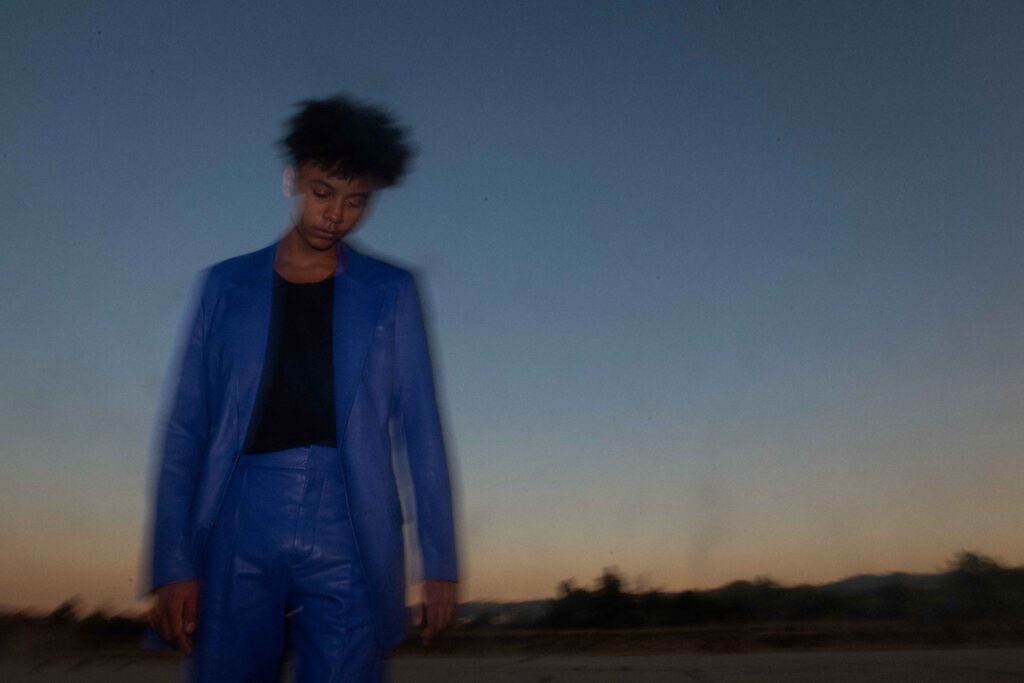
LAURA: Congratulations.
JOSHUA: Thank you very much, but yeah I film the rest of the week, and this should be fun, it’s my first time filming since February, since COVID started. And we follow all the safety precautions, we’re going to wear our masks, our gloves, our face shields, everything that they ask us.
LAURA: Talk about what the differences are. Like being able to go to the craft truck, just things like that.
JOSHUA: That’s my main of things! You know me, I’m a kid so I love my craft services and my snacks! So now you can’t just walk up to the lady, you just have to be behind the line and tell her exactly what you want and she makes a bag for you. It’s kind of like a store where you don’t have to pay, which is cool! So she makes the bag for you, puts whatever you want in there. And then when it comes to actual breakfast, lunch and stuff, you walk up to the van and they make exactly what you want for you. It’s not really the buffet style anymore, you give them exactly what you want, they put it on a plate, no one touches it besides you and them and they have gloves on and are fully sanitized, everything like that. So it’s going to be a little different but I’m super excited to see the environment and see what’s going to go down.
LAURA: When did you decide that you wanted to be an actor?
JOSHUA: I begged my mom ever since I can remember back to be an actor. And I kept begging her, until one day as I was on the football field after a game, and a casting director came to me and asked, “Would you like to be in a commercial?” And I told her, “This is a sign from God,” and she said, “Okay, we’re gonna get you an agent for one year. If I hear you complain about lines, or whining or anything, you’re out.” And I mean that’s the start. I started when I was I believe 10 years old, it’ll be 6 years next year. It’s been a ride, and I can’t wait to continue the journey with my mom.
LAURA: It’s all about having a supportive parent – you need at least one.
JOSHUA: Your mom keeps you grounded. Like, I’m doing all these different things, and at times your head can get big, you think you’re king of the world and can do whatever you want. But your mom is right there to push you down to earth, so it’s a joy to have my mom on set with me, and you know experiencing and being very proud of me and just laughing and having a great time and watching me do what I love to do. And without my mom, I wouldn’t be where I am today. Because she taught me the discipline that it takes to be an actor, and how much I have to work if I really want to be an actor. And I can’t agree more than that. Even when I’m older, 19 or 20, I’m still going to need my mom. I’m not fully grown yet, so she’s still going to be there to teach me all the things I need to know before I call myself a grown adult.
LAURA: Was your mom on the set with you?
JOSHUA: Yes, she flew in with me and flew out with me.
LAURA: That’s so great! She must have gotten really well with Darnell.
JOSHUA: Oh, my mom’s a sweetheart – can’t mess with her, but she’s a sweetheart. She gets along with everybody, she’s a very sweet person and doesn’t cause problems, doesn’t cause drama. She wants what’s best for me and what’s best for the show. And she loved Darnell – I mean, the first thing we did when we were in New York was to go hang out with Darnell. They got along very well and they still talk to this day, they’re very good friends. They’re very alike, I would say, in the way they’d both been raised and the way they raised their kids.
LAURA: A strong spiritual connection.
JOSHUA: Yes! Exactly, very strong, very spiritual, exactly.
LAURA: When Darnell heard that we were doing this interview, she was just really happy, she’s proud of the work you did.
JOSHUA: Thank you so much for having me and taking these forty minutes out of your time to talk to me. It’s a blessing to talk to somebody of your status, and I appreciate it and look forward to all the future talks we may have.
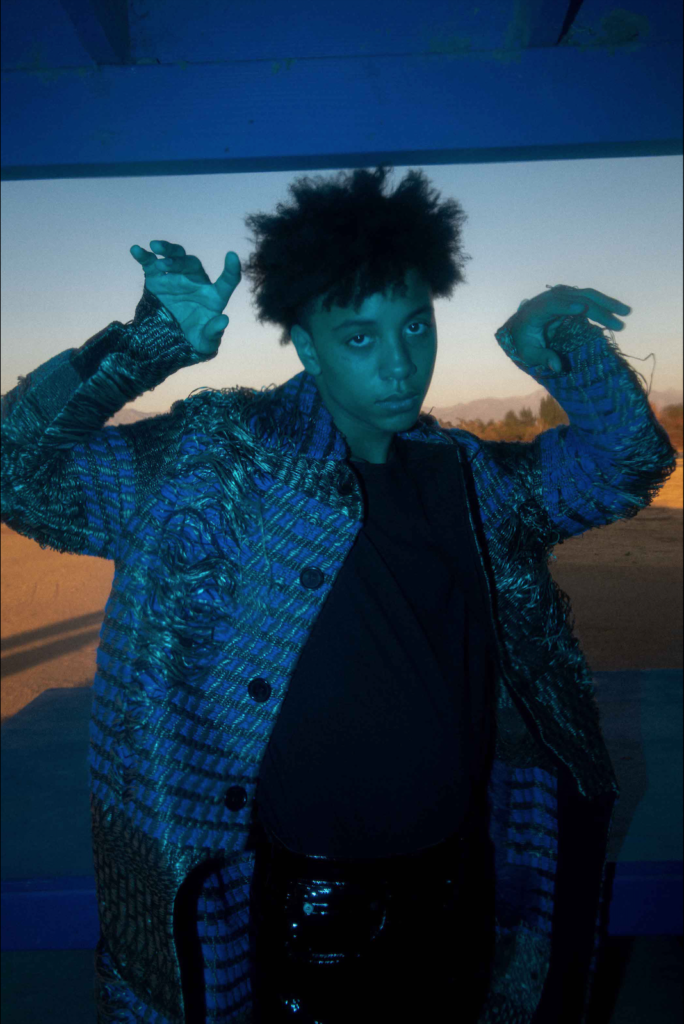
Creative Director & Fashion editor
Deborah Ferguson
Grooming
Anna Bernabe @ The Wall group
Interview transcription
Fotis Tzanakis
THANK YOU
Viewpoint LA & Showtime
